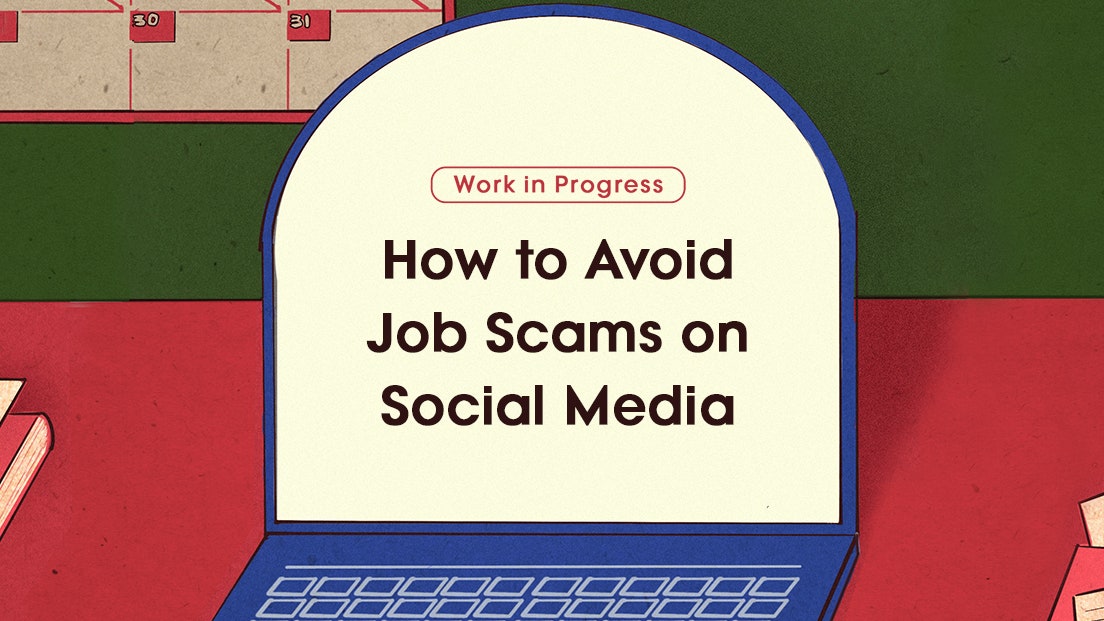
Jui Ramaprasad, Associate Professor of Information Systems and Faculty Director of the Interdisciplinary Business Honors Program at University of Maryland’s Robert H. Smith School of Business, echoes the need to ensure source credibility. “I would actually suggest that candidates start with an experienced career counselor or an HR professional in the industry, potentially accessed through the school’s career services office,” she told Teen Vogue via email, adding that social media personalities might also have these credentials, but it’s important to check.
In terms of spotting scams, Ramaprasad says it’s extremely unlikely to get offered a job you haven’t applied to or heard of, so texts or emails offering a position without any prior contact have a “high likelihood” of being a scam. She also suggests checking the source, not just the post, in order to make sure that the post is coming from a verified recruiter or an official company page. “I’d be wary of things posted [in] a spammy Facebook group, or if it’s a quote-unquote opportunity shared by just a random personal profile with no direct connection to the company,” she explains.
Ghost jobs are harder to understand, Ramaprasad said, since they often come from the company, which would typically be considered a credible source. “Here, I think applicants should look out for posts that seem to be missing critical information, don’t have a timeline or have an expired deadline, etc. — subtle flags that indicate that this company may not actually be hiring,” she explained.
A good rule of thumb, Ramaprasad says, is approaching everything with caution: “If something doesn’t feel right about the way you were approached about the job or the job posting – trust your instincts and dig deeper.”
Use your own social media
By now, you’ve probably heard advice to be mindful of your own social media presence, including potentially setting personal social media accounts to private if you don’t want a potential employer having access to them. (Even outside a job search, digital privacy is important.)
But experts say you can also use public-facing social media accounts to your advantage. Some even recommend a well-crafted cold message as a way to build connection.
Especially amid a chaotic job industry when job security feels flimsy at best, “there is security you can build for yourself when it comes to credibility, when it comes to your subject matter expertise,” said Upasna Gautam, a tech leader who has worked in the field for 17 years.
“The goal with building that personal brand, career portfolio, or that credibility, is to make sure that your voice, your skills and your expertise are so strong that they can stand by themselves without having to be attached to an external entity like a company,” she explained.
She suggests focusing less on titles and more on highlighting your skills and impact, using pinned content on LinkedIn to highlight work accomplishments or projects, and creating consistency in any public presence. Paying attention to building relationships — celebrating other people’s work, engaging with them in ways that are intentional and not transactional — goes a long way online, Gautam said.
This post was originally published on this site be sure to check out more of their content







